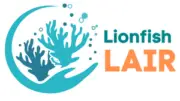For any hobbyist, feeding your established community of aquarium fish is one of the most enjoyable activities you can do. When you are feeding your fish, it provides some well-needed personal interaction with yourself and your fish, bringing even some of the shyest members of your fish tank close to you.
It gives you a good idea of how they are getting along, whether that be health-wise, or even just socially. You will also have much more exposure to some of your fish's beautiful patterns and bright colors too. The majority of fish are a lot smarter than you might think, and many will remember their carers, coming over to take a closer look when you approach their tank. Hand-feeding fish is also something to consider when a relationship consisting of trust has been established with you and your community.
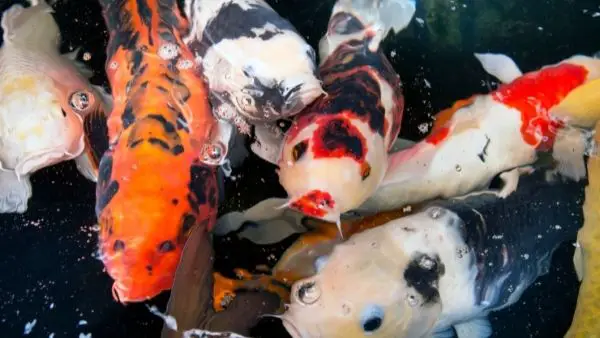
Despite popular belief, there isn't a great deal of evidence to suggest that a proper diet with the right nutrition, etc, will enhance the already bright colors of most saltwater fish, however, the correct diet for any fish will certainly help them stave off disease, and live a healthy life.
However, regardless of the reasons why your fish needs to be fed, it is an enjoyable task and one that many aquarium owners enjoy partaking in. Something that many people get wrong, is overfeeding fish, which is a huge problem within our hobby!
Why Are My Fish Constantly Hungry?
A fairly common misconception when owning freshwater fish, tropical saltwater fish, and even a lot of goldfish, is that when they come to the front or top of the tank, they are begging for food or displaying behavior to indicate that they are perhaps hungry.
It is important to understand that this is a behavioral pattern that has been learned over time, and is not an indication to show that your fish are starving. Your fish are used to and adapted for scavenging for food or hunting food in the wild. Seeking, capturing, and eating their food is what your fish will be genetically made for, and for the smaller fish, searching for crustaceans, algae, and even other small fish to eat is what they are cut out to do.
Fish are quite intelligent and they notice patterns, and when food is presented to them on a daily basis, and only occurs when they see you enter the room and approach the tank, of course, they will naturally swim over and look at you.
When aquarium fish eat, they do so by simultaneously opening their mouth and closing their gills, creating a suction motion, which helps the fish pack as much food as possible into their mouth. It is easy to think that because your fish are opening and closing their mouths at the water surface that they are hungry, most of the time they are not!
How To Avoid Overfeeding Your Fish
Overfeeding your fish is all too common for hobbyists because the misstakes that lead to it are far too easy to make! If you do not want an overfed tank, follow these steps that should help avoid overfeeding your fish in the first place.
Leaving Extra Food For Later
Another thing that hobbyists sometimes do which is a big no-no is leaving food in the tank for later. As assumption is made that if you add more food to the tank your fish will have something later when they are hungry again. There is only so much that your fish can consume at once, which is why many people do this - but you shouldn't!
Believing the extra food will be a good snack for later on, is simply not a good idea. Firstly the food, if neglected for a few hours will not be as fresh and therefore nutritional as it would be when served fresh, and secondly, other members of the community may get to it first when they potentially weren't even the intended recipient of it.
If you do have this concern, using an automatic fish feeder is a brilliant idea, as you can then schedule out specific feeding times and the feeder will do it all for you. It will release a specific set amount of food at whichever time you request and this ultimately means you will not overfeed your fish.
Another negative repercussion of adding extra food into a feed is that the food instantly begins decomposing, and will lead to food at the bottom of the tank, lacking nutrients, and making your tank dirtier and in need of a clean more often. Fortunately, there are many efficient and effective ways of cleaning your fish tank.
Food on the Bottom of the Tank
Overfeeding is extremely evident when you see an abundance of uneaten flake food sitting at the bottom of your tank. If the flakes you feed fish have not been consumed within the first couple of minutes, expect to see that exact food at the bottom of your aquarium with virtually no nutritional value to them anymore!
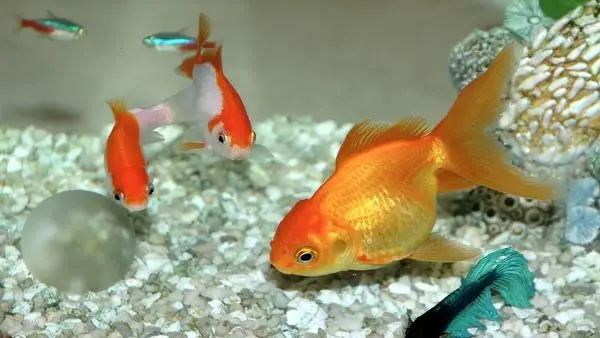
If left for a prolonged period of time, the flakes will begin to form a rotting sludge layer in the gravel, and once flakes get soggy, fish will choose to simply ignore them. The only exception to this is when feeding bottom feeders, that is, if your tank is home to any. They will often come up to the surface to be fed flakes, but other times it is a good idea to moisten and soften the flakes in order to get them sinking to the bottom quickly. Once your fish are finished with their feeding it is vital you make sure there are no leftovers.
Floating Pellets on the Surface
So, the sinking pellets are a serious problem for your tank and fish, but floating pellets on the surface of your tank will pose similar issues too. Pellets are sometimes highly compressed, meaning that they will potentially float for hours on the surface of your tank without sinking.
As a rule, there should never be any uneaten pellets drifting around your tank for an extended period of time, and if there are, it means your fish have finished eating and are not keen to continue the feed, they are disinterested.
They could have potentially overeaten as well, which means that they literally cannot force any more food down - which can't be good!. Uneaten food tends to decay and fall apart in the water, meaning that the pellets are gone, however, most people believe it is thanks to fish enjoying extra food.
Dirty Gravel
No matter what type of aquarium you own, or what type of fish are currently residing within it, you will need to clean the gravel. Debris that has been organically formulated, such as algae, and partially decomposed fish waste will gather over time at the bottom of your tank, submerged in the gravel.
The process is certainly sped up when overfeeding is taking place in your tank, which subsequently can and will lead to poor and even dangerous conditions for your fish. If food is rotting, it will consume oxygen, which is what your fish need to live. There are beneficial bacteria living on the surface of the gravel, however, more aggressive bacteria that come from algae and fish waste will override the current bacteria on the surface.
Some of these microbes have caused many fish diseases over time and can be a monumental problem for aquariums. These microbes live in dirty aquariums and one of the most common causes for dirty aquariums is overfeeding.
The more you feed your community, the more solid waste will be produced, solid waste typically will be broken down and then recycled. However, if you start overfeeding your fish, there will be an overabundance of poop produced by them, which will then become fish waste and negatively affect your tank by causing poor water quality, which will then lead to unhealthy fish.
Cloudy Water
Cloudy water is never, ever a good thing to see in your aquarium, it almost always means that a spawn of unwanted bacteria has arrived in the water. Despite these bacteria being harmless, they are activated into something called "explosive growth", and uneaten fish food feeds this bacteria.
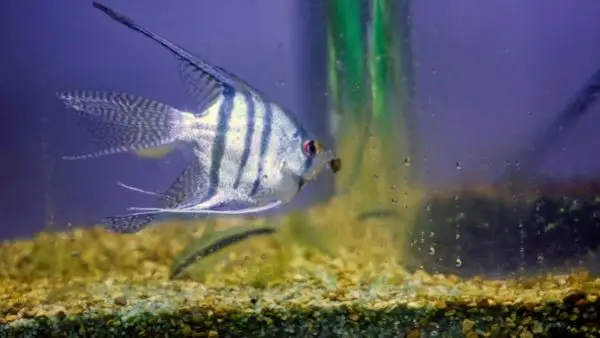
It provides the bacteria the energy required in order to reproduce every few hours, if no changes are made the water will become almost translucent due to the sheer number of bacteria in it. If you reduce your feeding then the bacteria should start to go and your tank will clear.
Low pH Levels
When organic waste decomposes, acids are produced, these acids will neutralize a portion of the pH stabilizing carbonates in your tank's water. Low pH levels are typically caused by overfeeding when the carbonate hardness is naturally low at the beginning.
It is crucial that you test the KH when you start to see the pH low, a low pH spells trouble for a multitude of different and worrying reasons, with one of the more notable being that a low pH can suppress the biological filter, leading to ammonia levels that will certainly cause problems for your aquarium.
Ammonia Issues
When fish digest protein-rich foods, they expel ammonia from their gills. A build-up of Ammonia in the water will damage the fish's gills, can cause stress, and leads to harmful diseases.
High Ammonia levels usually occur when fish are being fed much more than they need to live a healthy life. What happens is when the fish are being overfed, you are also overfeeding the biological filter's ability to remove the ammonia at a quick rate, so, overfeeding your fish will likely result in a surge of ammonia.
Nitrite Issues
Once ammonia has formed within your aquarium, it is then converted into nitrite and then nitrate. Nitrite is incredibly toxic for fish, and overfeeding your community can cause an insane amount of ammonia and nitrite levels. Nitrite prevents fish's blood from carrying oxygen, which then stresses the fish and can easily lead to death or serious disease. Your tank cleaning and maintenance should always include checking for ammonia and nitrite.
Overweight and Greedy Fish
A tell-tale sign that your fish are healthy and thriving is when they are at a slender weight and are streamlined, swimming through the water with ease and with minimal resistance. There are some obvious exceptions, for example, Goldfish and a handful of tropical fish have been bred to have rounded bodies.
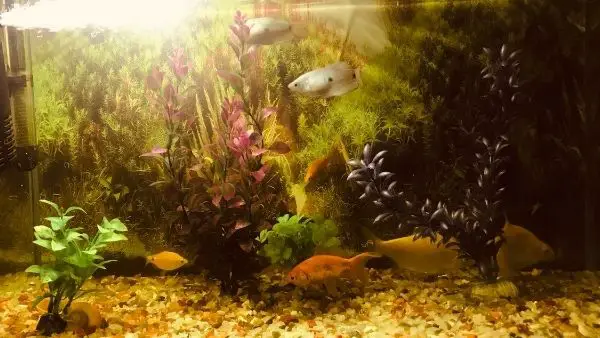
Fish, much like every other living being on this planet, can overeat and become obese. Excess fat tends to build inside of their bodies and presses on their organs, causing bloating and even digestive issues. Fish in the wild will eat plenty throughout the day, however, it will be in small quantities, and spread out.
For aquarium fish, it is recommended to feed them small amounts a few times a day, or even once will likely keep them satisfied and also quench their body's nutritional thirst. Feeding fish to the point where they physically cannot eat any more food is never recommended and can become seriously detrimental to their health.
Conclusion
Feeding fish is always an enjoyable part of being a hobbyist, it is extremely rewarding and pleasing to see your fish respond and interact with you. Overfeeding your fish will not only be a detriment to your fish's health, causing diseases, and other life-threatening situations but it is also terrible for the health of your overall tank, causing problems for your entire community and more clean up for you.
Fish regularly act as if they are hungry, or even just seem like they are, however, if you get fooled by this and begin overfeeding them then you will be significantly reducing their quality of life and life expectancy. From this guide, you should have an idea of how to tell you are overfeeding your fish and also how to prevent it too, resulting in both healthy and happy fish, and an even happier aquarium owner!
